Factors Contributing to Urbanization
- Rural-urban migration: People move from rural areas to urban areas in search of better job opportunities, improved living standards, and access to amenities.
- Industrialization: The growth of industries in urban areas creates job opportunities, attracting people from rural areas.
- Technological advancements: Urban areas often offer better access to technology, healthcare, and educational facilities.
- Social factors: Urban areas may provide a more diverse and dynamic social environment, attracting individuals seeking cultural experiences and interactions.
Effects of Urbanization
Urbanization has both positive and negative effects on society and the environment.
- Positive effects:
- Negative effects:
- Overcrowding and strain on resources
- Environmental pollution and degradation
- Social issues such as crime and poverty
Urbanization and the Environment
Urbanization can have significant impacts on the environment, including:
- Loss of natural habitats and biodiversity
- Increased air and water pollution
- Higher energy consumption and waste generation
Study Guide
To understand urbanization, it is essential to explore the following concepts:
- Causes and consequences of urbanization
- Impact of urbanization on the environment
- Social and economic implications of urbanization
- Strategies for sustainable urban development
Key terms to study include rural-urban migration, infrastructure development, urban planning, sustainable cities, and urban sprawl.
Be sure to consider the historical and contemporary factors that have contributed to urbanization, as well as the potential solutions for addressing its challenges.
[Urbanization] Related Worksheets and Study Guides:
.◂Science Worksheets and Study Guides Eighth Grade. Organic compounds
Study Guide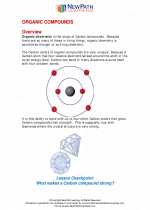 Organic compounds
Organic compounds  Worksheet/Answer key
Worksheet/Answer key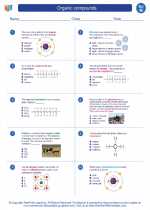 Organic compounds
Organic compounds  Worksheet/Answer key
Worksheet/Answer key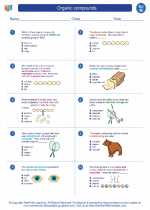 Organic compounds
Organic compounds  Worksheet/Answer key
Worksheet/Answer key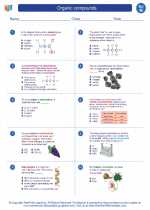 Organic compounds
Organic compounds  Vocabulary/Answer key
Vocabulary/Answer key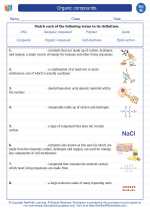 Organic compounds
Organic compounds  Vocabulary/Answer key
Vocabulary/Answer key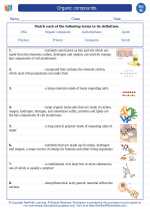 Organic compounds
Organic compounds 

 Worksheet/Answer key
Worksheet/Answer key
 Worksheet/Answer key
Worksheet/Answer key
 Worksheet/Answer key
Worksheet/Answer key
 Vocabulary/Answer key
Vocabulary/Answer key
 Vocabulary/Answer key
Vocabulary/Answer key

The resources above cover the following skills:
Physics: Students will use scientific skills and processes to explain the interactions of matter and energy and the energy transformations that occur.
Thermodynamics: Identify and explain that heat energy is a product of the conversion of one form of energy to another.
Identify and describe the various forms of energy that are transformed in order for systems (living and non-living) to operate: Chemical - Flashlight-Light; Mechanical - Pulleys-Motion; Solar/Radiant - Solar calculator; Chemical - Plant cells.